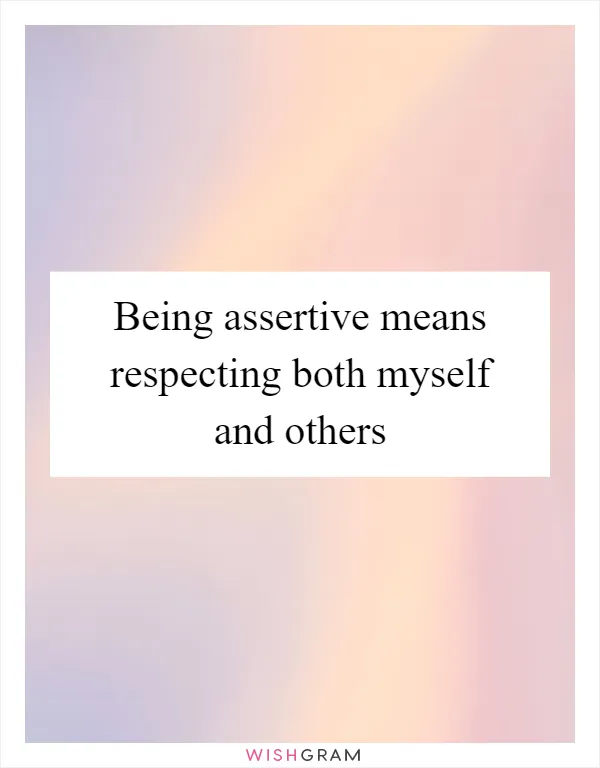Being assertive means respecting both myself and others
Being assertive means standing up for yourself and your needs, while also considering the rights and feelings of others. It's about finding a balance between expressing yourself and respecting those around you. When you are assertive, you communicate your thoughts, opinions, and boundaries in a clear and confident manner.
By respecting yourself, you acknowledge your worth and value as an individual. You recognize that your needs and desires matter and deserve to be expressed. Being assertive allows you to set healthy boundaries and ensure that your rights are upheld. It empowers you to say no when necessary and to prioritize your well-being.
At the same time, being assertive means respecting others. It means understanding that they too have rights, needs, and feelings. It involves listening attentively to their opinions and perspectives without judgment or interruption. By considering the thoughts and emotions of others, you foster a supportive and inclusive environment.
When you embrace assertiveness, you create a space where open and honest communication thrives. You are able to address conflicts or disagreements in a respectful manner, finding solutions that benefit all parties involved. By expressing your needs and actively listening to others, you build stronger relationships based on mutual understanding and cooperation.
Remember the affirmation: “Being assertive means respecting both myself and others”. It serves as a reminder that asserting yourself doesn't mean trampling over others or disregarding their feelings. Instead, it encourages you to find a balance where you can assert your needs while being considerate of others.
